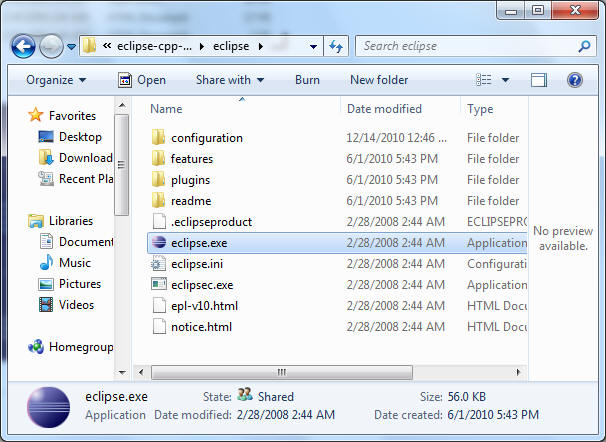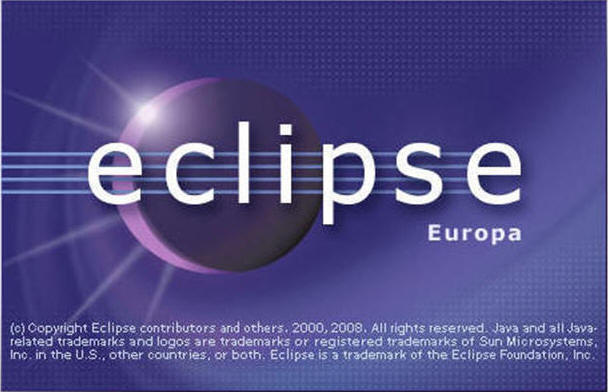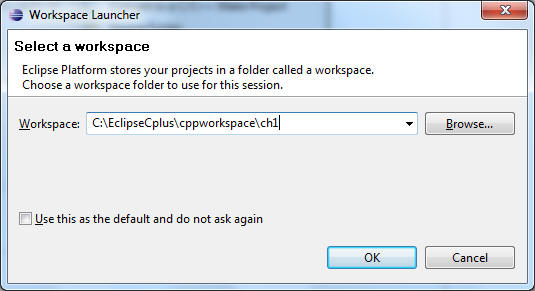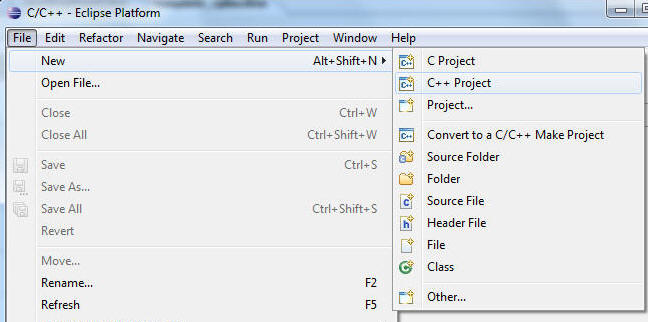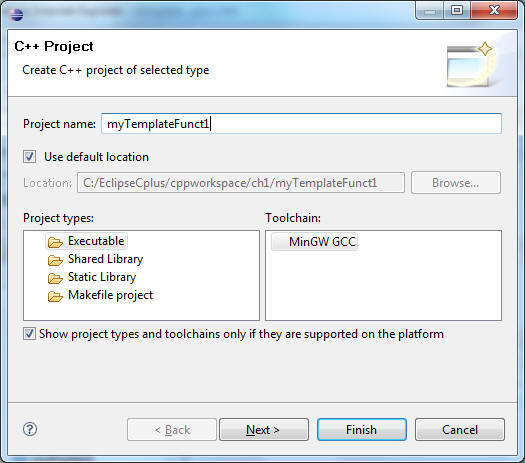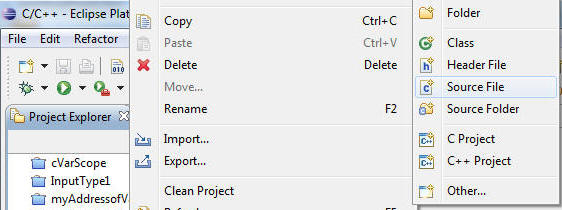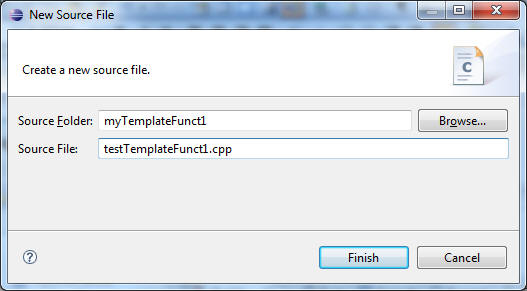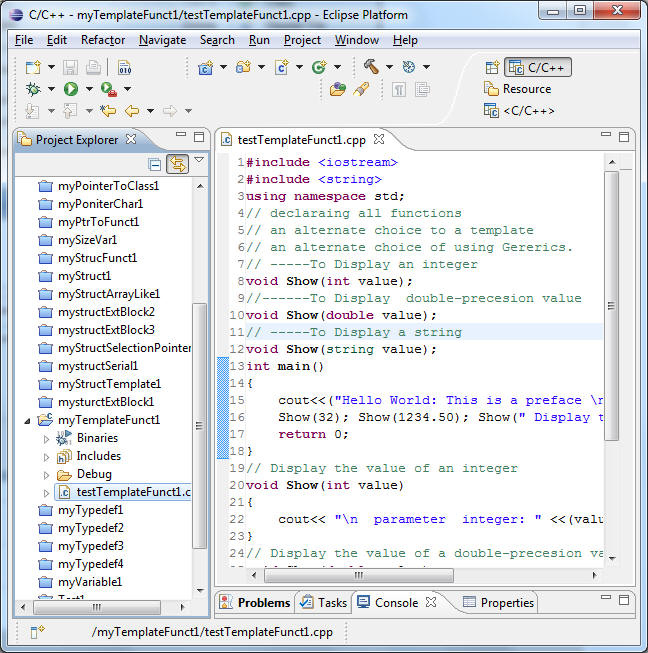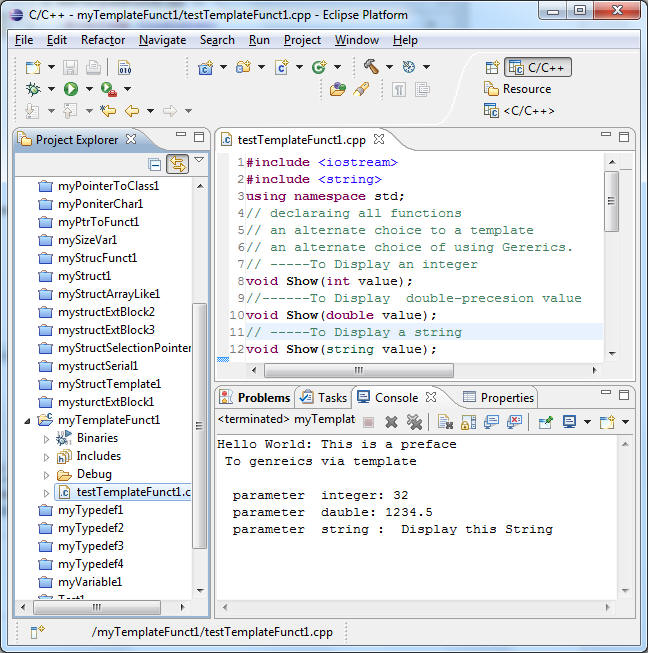Templates are of great utility to programmers in C++, especially when combined with multiple inheritance and operator overloading. The C++ Standard Library provides many useful functions within a framework of connected templates.
Objectives :
- Template, distinction between overloading and overwriting a function.
- What is Template ? C++ offers parametric polymorphism which allows generic algorithms and data structures via Template
- Template class is also know as "parameterized-classes"
- It is great when data structures could not be determined upfront or the data structures would be overridden (overwriting) in an application, overloading a function (meaning multiple version of a function) offers a great deal of flexibilities
- Overriding in C++, begins with the term inheritance ( inheriting a base class), where subclasses would overwrite the output of a function belongs to a base class.
- In the current example we would be overloading the argument data-types in a function.
- The method name ( signature) remains same, but the arguments in each will be different.
- void dosomething(){};
- void dosomething(int a1, string str1){}
- void dosomething(int a1, string str1, double sal){};
- Code : myTemplateFunct1.txt
When we need template
- Main reasons, but not absolute.
- making Type safe collection class
- If not specialized for any data type, default is void type, meaning would accept any data-type
- Creating one generic class than creating specialized class or function
- Difference between template and macro
- macro has less scope type checking than template.
- in macro compiler won't verify the parameter compatibilities.
- Comparing void pointer to a function and template
- with void pointer can't check on specific data-type, operator overloading and deploy constructor /destructors.
- Creating smart pointer: here template allows to create a generic wrapper to encapsulate objects, and offers late binding to the objects .
Base Reference : http://en.wikipedia.org/wiki/Operator_overloading
Through templates C++ language provides parametric polymorphism which allows generic algorithms and data structures. When an instance of a class is created , the templates ensures the correct executions of the routines encapsulated in a class.
Templates are compiled when required. Template works like a run-time code optimizer, reduces run time over head and memory foot prints.
No code is generated until a template is instantiated, and when required, the compilers allow the inclusion of template-file in a project without generating linkage errors.
Step: 1 Create a project
Step: 2 Create a source file
Step: 3 Edit Source code
Step: 4 Runtime View
